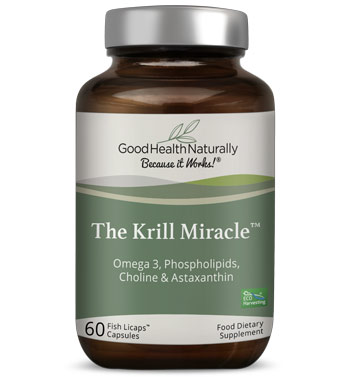
As Olivia is taking a break from this week’s newsletter due to family commitments, I thought I would pick up from where she left off last week on memory. The topic also resonated with me as it can be challenging to hold on to so many things with work, family and other aspects of daily life. It’s no wonder that we have some epic failures some days! Like Olivia, I have to be super organised with my diary and notes to keep track of everything. However, for this week’s newsletter, I decided to delve further into omega-3 fatty acids, which were recommended by Olivia last week, and their essential role in memory and brain health.
Omega-3 Fatty Acids and Memory
Memory is a cornerstone of cognitive function, and maintaining its sharpness is a priority for individuals navigating the challenges of modern life. Omega-3 fatty acids, comprised mainly of eicosapentaenoic acid (EPA) and docosahexaenoic acid (DHA), play a pivotal role in safeguarding and enhancing memory.
Neuroplasticity
Neuroplasticity, the brain’s remarkable ability to adapt and reorganise itself, is crucial for learning and memory. Omega-3 fatty acids contribute to neuroplasticity by influencing the structure and function of synapses, the connections between neurons. DHA, in particular, is highly concentrated in the synaptic membranes, where it supports the fluidity and integrity essential for efficient signalling between nerve cells. This structural support enhances the brain’s adaptability and resilience, contributing to improved memory formation and retention.
Neurotransmitter Regulation
Memory formation and recall are intricately linked to neurotransmitters, the chemical messengers that transmit signals between neurons. Omega-3 fatty acids play a vital role in regulating neurotransmitter function, influencing the release and reception of these messengers.
Serotonin, a neurotransmitter associated with mood and emotion, is modulated by omega-3s, contributing to emotional stability and overall cognitive well-being. Dopamine, another critical neurotransmitter, is crucial for motivation and reward-based learning, and omega-3s support its synthesis and release. By maintaining a delicate balance of neurotransmitters, omega-3 fatty acids create an environment conducive to optimal memory function and cognitive performance.
Omega-3s and Inflammation
Chronic inflammation in the brain has been linked to cognitive decline and neurodegenerative diseases. Omega-3 fatty acids help regulate the production of pro-inflammatory molecules. EPA and DHA help actively resolve inflammation and promote a balanced immune response. By mitigating chronic inflammation, omega-3s create an environment that supports long-term cognitive health, preserving memory and protecting against cognitive decline.
Memory Across the Lifespan
The impact of omega-3 fatty acids on memory is not confined to a specific stage of life; instead, it covers the entire lifespan. During pregnancy, omega-3 supplementation has been associated with improved cognitive outcomes in offspring, emphasising the critical role these fats play in fetal brain development.
In childhood and adolescence, when the brain undergoes rapid growth and maturation, adequate omega-3 intake supports learning, memory consolidation, and cognitive flexibility. Research suggests that omega-3 supplementation in children may enhance working memory and academic performance, showing the importance of these fatty acids in cognitive development.
As individuals age, the risk of cognitive decline increases. Omega-3 fatty acids, with their neuroprotective properties, are essential in preserving memory and cognitive function in later years. Studies have linked higher omega-3 levels to a reduced risk of age-related cognitive decline and dementia, suggesting that these essential fats may contribute to mental resilience as we get older.
Practical Steps Towards Brain Health
Incorporating omega-3-rich foods into the diet is a practical and healthy way to support cognitive health. Fatty fish, such as salmon, mackerel, and sardines, are excellent sources of DHA and EPA. Plant-based options, like flaxseeds, chia seeds, and walnuts, provide alpha-linolenic acid (ALA), a precursor to DHA and EPA.
For those who may find it challenging to obtain sufficient omega-3s through dietary means, high-quality supplements offer a convenient and reliable alternative. Krill Oil is an effective way to obtain concentrated doses of DHA and EPA. You can also find algae-based omega-3 supplements for those on a vegan or vegetarian diet.
Other Nutrients and Omega-3s
Combining omega-3 fatty acids with other brain-supportive nutrients enhances their collective impact on cognitive health. Antioxidants, found in abundance in fruits and vegetables, protect the brain from oxidative stress, complementing the anti-inflammatory properties of omega-3s.
Vitamins and minerals, such as vitamin B complex, vitamin D, and magnesium, contribute to the overall nourishment and resilience of the brain. The collective action of these nutrients creates an environment that supports optimal memory, cognitive function, and overall brain health.
Conclusion
In the realm of natural health, where the mind and body intricately intertwine, omega-3 fatty acids emerge as exceptional guardians of memory and cognitive well-being. From the early stages of life to the golden years, the influence of these essential fats on neuroplasticity, neurotransmitter regulation, and inflammation positions them as indispensable contributors to brain health. So, the next time you savour a piece of salmon or sprinkle flaxseeds on your morning yoghurt, remember that you’re not just fueling your body but also keeping your brain sharp!
Recommended Product





